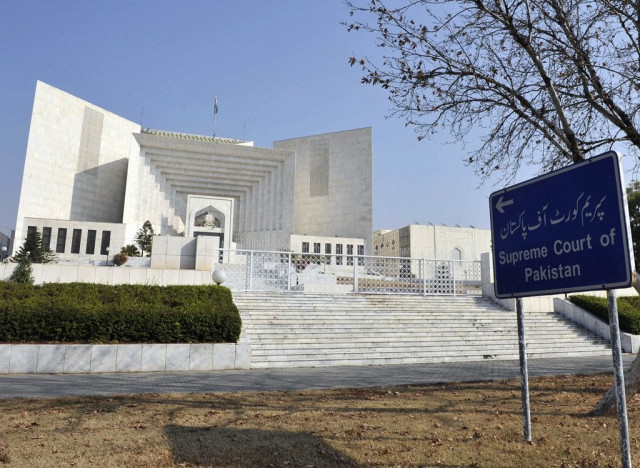SC directs provinces, ICT to amend rules for vehicle registrations
Petition seeking superdari prompts reconsideration of rules under Motor Vehicles Ordinance

PHOTO: AFP/File
The judgement, authored by Justice Syed Mansoor Ali Shah, further directed the relevant authorities to consider developing an online verification system, under the Motor Registration Authority and the police, to identify vehicles involved in crimes.
“The transferor/transferee at the time of registration of the vehicle may be required to obtain a No Objection Certificate from the police or to submit an affidavit to the effect that the vehicle is not involved in any criminal case,” read the writ order.
The order came in a case pertaining to a vehicle seized by the Lahore police in 2015. The police allegedly found narcotics and weapons in the vehicle and apprehended two suspects.
In November 2015, petitioner Amjad Ali Shah submitted an application before the trial court for the release of the vehicle to him on superdari. The petitioner, who was not accused in the case, asserted that he was the owner of the vehicle and that he would suffer irreparable loss if the vehicle was not handed over to him. Besides, he added, there was a probability that the vehicle may suffer damage in possession of the police. The trial court had allowed the application for superdari under order dated December 18, 2015, and had directed for the custody of the vehicle to be handed over to the petitioner.
However, the Punjab prosecution challenged the trial court’s verdict in the Lahore High Court.
Meanwhile, the petitioner submitted a petition before the LHC praying that the police be directed to handover the vehicle in compliance with the trial court’s order.
However, according to the LHC’s verdict, the petitioner could not establish his ownership of the vehicle on the basis of an open transfer letter and his petition was dismissed. The petitioner then challenged the LHC’s verdict in the apex court.
The judgement of the Supreme Court upholds the LHC’s order and notes that the trial court’s verdict whereby the petitioner had been allowed superdari of the vehicle was not sustainable according to law.
The apex court observed that the case brought up two distinct yet interconnected legal issues. The first was whether a vehicle involved in the commission of an offence under the Control of Narcotics Substances Act 1997 (CNSA) can be temporarily released on superdari, when it has been submitted by the police as case property. And second, whether such a vehicle can be transferred and registered in the name of a third party by the Motor Registration Authority under the MVA before the court has given its verdict.
The court observed that while a confiscated vehicle could be released on superdari in certain cases, this was not applicable in the case of a vehicle involved in the commission of an offence under CNSA.
With regards to the second issue, the court observed that in this case the registration of the vehicle under the MVA was not permissible. To this end, the apex court directed the provincial governments and ICT chief commissioner to consider amendment(s) in the MVO and its Rules while also recommending an online verification system to identify vehicles involved in the commission of a crime.



















COMMENTS
Comments are moderated and generally will be posted if they are on-topic and not abusive.
For more information, please see our Comments FAQ